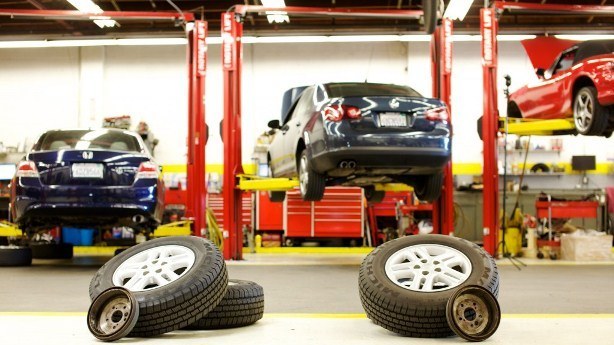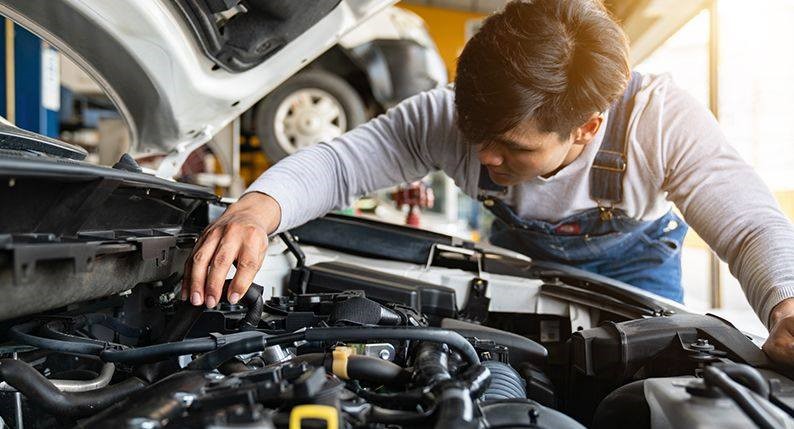All Categories
Featured
Normal engine tune-ups are essential for keeping your automobile's efficiency, boosting gas performance, and prolonging its life-span. Whether you're a seasoned vehicle owner or a novice, understanding the essential aspects of an engine tune-up can assist you maintain your cars and truck running efficiently for years. Below are some crucial ideas to assist you via the process.
- Change the Flicker Plugs. Ignition system are little yet magnificent components that play an important role in igniting the fuel-air mixture in your engine. Gradually, they can wear or end up being fouled, causing inadequate engine performance, reduced gas efficiency, and tough starts.
During a tune-up, inspect your ignition system for wear and replace them as essential. For a lot of cars, ignition system need to be replaced every 30,000 to 100,000 miles, depending on the kind and material. Fresh ignition system make certain efficient burning and smoother engine procedure.
- Examine and Change the Air Filter. The air filter is your engine's initial line of defense against dust, particles, and other pollutants. A clogged or filthy air filter can restrict airflow, causing your engine to work more challenging and take in even more fuel.
Inspect your air filter during a tune-up and change it if it's unclean or past its suggested solution interval. A clean air filter boosts engine efficiency and enhances fuel economy.
- Check the Fuel System. Over time, your fuel system can collect dust and carbon deposits, decreasing engine performance and fuel effectiveness. Cleaning up the fuel injectors and gas lines during a tune-up assists maintain correct fuel distribution and burning.
You can use a gas system cleaner or have a specialist mechanic execute a much more complete cleaning. This step is specifically helpful for older automobiles or autos regularly driven in stop-and-go website traffic.
- Inspect the Belts and Hose pipes. Belts and hose pipes are important for numerous engine functions, such as running the alternator, water pump, and air conditioning. During a tune-up, look for cracks, fraying, or indicators of endure these parts.
Replace any type of worn-out belts and pipes to avoid potential break downs. A damaged belt or dripping hose pipe can bring about engine overheating or loss of power, so addressing these problems immediately is crucial.
- Replace the Engine Oil and Oil Filter. Engine oil is vital for oiling moving components, decreasing friction, and managing engine temperature level. Gradually, oil becomes polluted and sheds its performance.
As component of a tune-up, replace the engine oil and oil filter. Use the type of oil suggested by your car's manufacturer and adhere to the recommended modification intervals. Tidy oil keeps your engine running smoothly and avoids early wear.
- Check the Battery and Charging System. A healthy battery is necessary for starting your vehicle and powering its electric systems. During a tune-up, examine the battery's voltage and inspect the terminals for corrosion. Clean the terminals if required and make certain a safe link.
Additionally, test the alternator and charging system to ensure your battery remains billed throughout operation. If your battery is weak or old, take into consideration replacing it to avoid unanticipated malfunctions.
- Flush and Replenish the Coolant. The cooling system manages your engine's temperature level, avoiding it from overheating. Old or polluted coolant can lose its efficiency, leading to potential engine damages.
Throughout a tune-up, purge the old coolant and change it with a fresh blend. Evaluate the radiator, thermostat, and pipes for leaks or damage. Keeping the air conditioning system in excellent condition ensures your engine runs at the ideal temperature.

- Address Warning Lights and Unusual Symptoms. Modern lorries are equipped with analysis systems that alert you to potential problems with control panel warning lights. If your check engine light or any other warning indications are on, address them during your tune-up.
In addition, pay interest to unusual signs such as strange sounds, harsh idling, or decreased fuel performance. An expert mechanic can detect and solve these issues during the tune-up process.
- Don't Neglect the Exhaust System. Your car's exhaust system gets rid of hazardous gases from the engine and makes certain correct discharges. Evaluate the exhaust system for leakages, corrosion, or damage during a tune-up. A damaged exhaust system can impact engine efficiency and lead to ecological and safety concerns.
- Usage High-Quality Components and Fluids. When replacing components or completing liquids during a tune-up, constantly select premium products that satisfy your automobile's specifications. Making use of poor parts or incorrect liquids can adversely influence your engine's performance and durability.
Verdict: Normal Tune-Ups Are Trick to Engine Wellness. Putting in the time to tune up your engine ensures it runs effectively, conserves gas, and reduces the risk of breakdowns. Whether you perform these jobs yourself or rely upon a trusted auto mechanic, normal tune-ups are an investment in your lorry's dependability and long life. Comply with these suggestions, and you'll enjoy a smoother, much more reputable adventure for several years ahead.
Latest Posts
Recognizing Roof Guarantees: What Homeowners Ought To Know
Explore Your Financial Partner at WyHy – Key Advantages for Your Financial Success
Join WyHy FCU – Top Benefits for Your Goals
